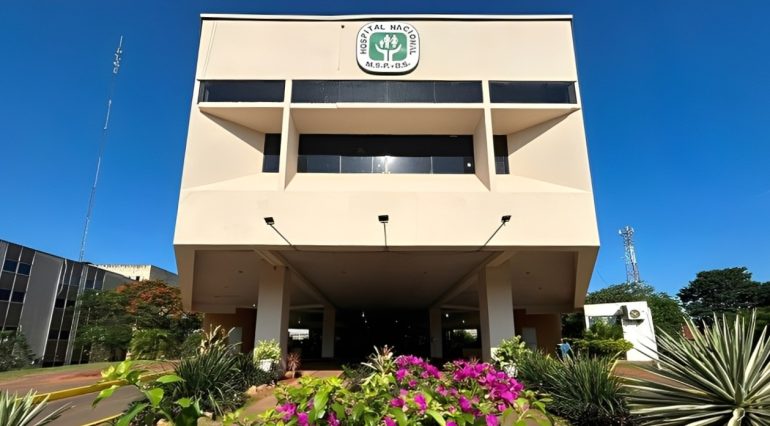The Itauguá National Hospital, one of Paraguay’s main healthcare facilities, is undergoing its largest transformation in over thirty years. The improvements include infrastructure renovations, the acquisition of new medical devices, and the addition of staff. The upgrades aim to improve healthcare services provided at the hospital.
Over the past few years, various improvements have been made across buildings, medical technology, and staff capacity. These actions follow plans announced during Paraguayan President Santiago Peña’s visit earlier this year. Improvement has been gradual, with various areas receiving focused investment based on priority needs.
New patient and family accommodation
Work is in progress on a new accommodation facility for patients and their families within the hospital complex. Paraguay’s Ministry of Public Health and Itaipú Binacional are funding the project with more than Gs. 9.5 billion (approximately US$1.3 million). The facility will have space for over 70 people and include accessibility features, and sustainable design elements.
Refurbishments and expansions
Alongside the new accommodation, numerous renovations and expansions are taking place in critical areas. Several hospital departments are undergoing renovations and expansions to update facilities and improve capacity. The Nephrology and Dialysis units have been completely renewed, with new spaces and services available. The Adult Intensive Care Unit (ICU) now has additional beds, new equipment, and more staff members.
Renovations have also taken place in the Obstetrics, Gynaecology, and Neonatology departments, including delivery rooms, wards, and neonatal units. The Operating Theatre and the Surgery areas are being renovated with new installations being created. The ICU waiting area has also been refurbished for families of critically ill patients. The Surgery and Operating Theatre departments have seen key areas renovated, with new installations currently in progress. Lastly, the Adult Emergency department has improved waiting areas, plumbing, and sanitation facilities.
State-of-the-art medical equipment
Through the National Plan for the Recovery of Intensive Care Units, the Itauguá National Hospital received a significant number of cutting-edge biomedical devices. This includes 30 high-complexity ventilators, 64 multi-parameter monitors, and 60 electric beds. Other additions include incubators, suction devices, crash carts, defibrillators, infusion pumps, ultrasound machines, medical compressors, and industrial washing machines.
The improvements extend to staffing, particularly in Neonatology, where 51 nurses and 35 specialist doctors were added. This significantly bolsters the department’s capacity. The hospital has also expanded its service portfolio, adding high-complexity procedures such as paediatric kidney transplants, oncology surgery, and thyroid surgical procedures. Diagnostic areas such as digestive endoscopy, anatomical pathology, and cardiology have also been reinforced.
Investment in medical supplies, and future plans
Investment in medical supplies and medicines has grown considerably since 2023. Costs rose from Gs. 216,766 million (approximately US$29.7 million) in 2023 to more than Gs. 185,000 million (approximately US$25.3 million) by mid-2025. This reflects efforts to ensure adequate resources for hospital operations and patient care.
Looking to the future, the hospital is preparing a Model Architectural Plan (Plan Modelo Arquitectónico – PMA) for the construction of a new National Hospital. This initiative seeks to guide future expansions and modernisation efforts. The plan aims to meet the needs of over one thousand daily patients at the Itauguá National Hospital.


